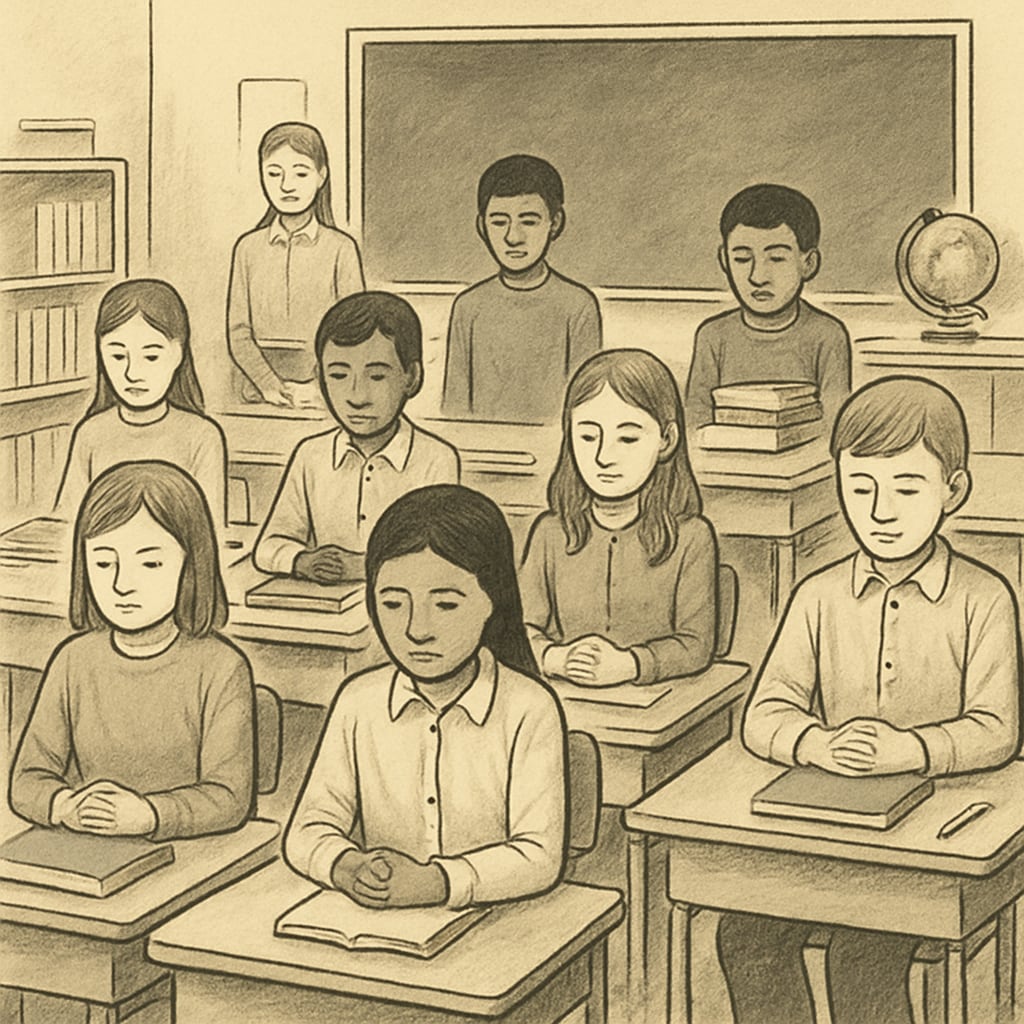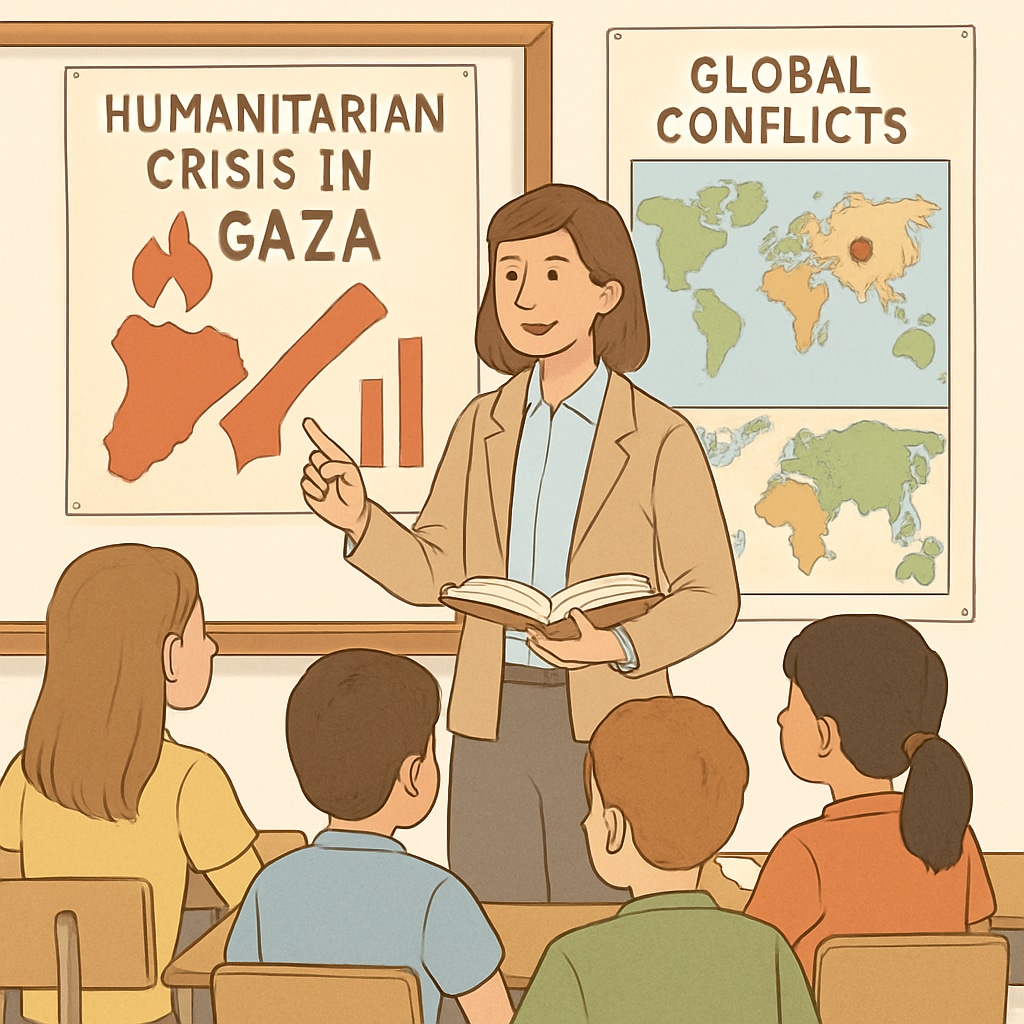The recent controversy surrounding schools’ decision to generalize “Gaza mourning” into a broader acknowledgment of “global war victims” has sparked widespread debate. This shift, while seemingly rooted in the pursuit of political correctness, raises critical questions about the dilution of specific humanitarian crises and the ethical responsibilities of educational institutions. By exploring the implications of this decision, we can better understand its impact on students, educators, and the broader conversation about global conflicts.
From Specific Mourning to Globalized Recognition: What’s at Stake?
In response to the ongoing humanitarian crisis in Gaza—a region that has faced immense suffering due to prolonged conflict—many schools initially organized moments of silence to honor the victims. However, in an effort to avoid perceived bias or political contention, some institutions broadened the scope of these activities to include all victims of global wars. While inclusivity is often seen as a virtue, this approach has drawn criticism for overshadowing the unique and immediate tragedies faced by Gaza’s population.

Critics argue that this generalization risks erasing the urgency and specificity of Gaza’s humanitarian crisis. For example, Wikipedia’s entry on Gaza highlights the region’s unique geopolitical challenges, which demand focused attention. By reframing the mourning to encompass all global victims, schools may inadvertently downplay the gravity of specific crises, leaving students with a diluted understanding of global conflicts.
Ethical Implications for Educational Institutions
Educational institutions hold a unique position in shaping young minds and fostering critical thinking. When addressing sensitive topics such as war and humanitarian crises, schools must strike a balance between impartiality and the need to confront uncomfortable truths. The decision to generalize mourning activities stems from a desire to avoid political controversy, but it also raises ethical concerns about avoiding the acknowledgment of specific injustices.
For instance, the decision to “globalize mourning” might be interpreted as a form of neutrality, but neutrality in the face of injustice can often be seen as complicity. As noted by Britannica’s entry on humanitarianism, true humanitarian efforts require direct engagement with specific crises rather than broad gestures. Schools, therefore, have a responsibility to educate students about the complexities of individual conflicts rather than simplifying them under a universal umbrella.

Navigating Controversy: How Should Schools Approach Sensitive Topics?
To address the controversy, schools can adopt a more nuanced approach that respects both the specificity of individual crises and the broader context of humanitarian suffering. Here are some actionable strategies for educators:
- Contextualized Education: Incorporate lessons that focus on specific crises, such as Gaza, while also teaching students about the interconnected nature of global conflicts.
- Open Dialogue: Create safe spaces where students can discuss and ask questions about sensitive topics, fostering critical thinking and empathy.
- Collaborative Activities: Partner with humanitarian organizations to provide tangible learning experiences, such as fundraising initiatives or guest lectures from field experts.
- Balanced Representation: Avoid overly generalized narratives by presenting both specific case studies and broader global perspectives.
By implementing such strategies, schools can ensure that students gain a well-rounded understanding of global issues without erasing the importance of specific crises.
Conclusion: Striving for Ethical Clarity
The debate over “globalized mourning” highlights the delicate balance that educational institutions must maintain when addressing sensitive issues. While inclusivity and neutrality are important, they should not come at the expense of acknowledging specific humanitarian tragedies like those in Gaza. Schools have a duty to equip students with the knowledge and empathy needed to navigate complex global challenges, and this requires courage, clarity, and a commitment to ethical education practices.
Ultimately, the goal should not be to dilute the truth but to empower students to understand and engage with it. By prioritizing thoughtful, context-driven education, schools can honor the victims of specific crises while fostering a broader awareness of global suffering.


